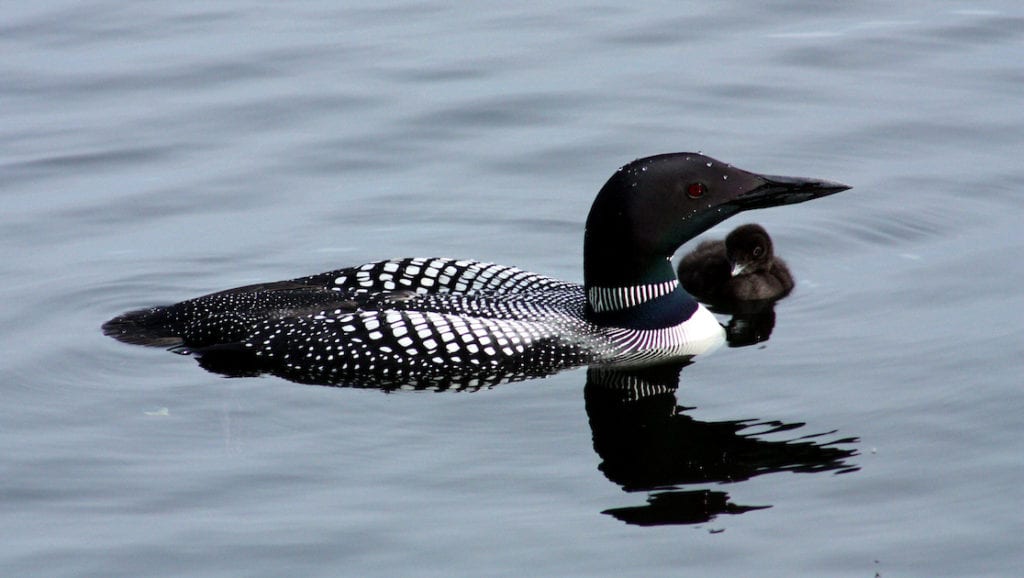
One of Maine’s most iconic wildlife species will benefit from a new law signed this week by Governor Mills that phases out the use and sale of small-sized painted lead fishing tackle. Common Loons can accidentally ingest lost or discarded lead tackle when it sinks to the bottom, causing illness and death. This new law will bring Maine’s waterways one step closer to being safe for loons.
The new law builds on prior state legislation limiting the use of lead tackle. Following a five-year phase-out process, it has been illegal to sell and/or use lead sinkers and bare “unpainted” jigs (weighing an ounce or less or measuring less than 2.5 inches in length) in Maine since 2017. While existing law, paired with education and lead tackle exchange programs, have proven effective in many ways, a loophole allowed for the sale and use of painted lead jigs within these size and weight limitations. Paint does nothing to limit the danger of the tackle, however, so risks remained.
Dozens—including anglers, lead scientists, veterinarians, environmental organizations, and others—submitted testimony in support of LD 958 and more than 1,000 people signed Maine Audubon’s petition in favor of the bill.
“Death by lead poisoning is avoidable,” says Francesca Gundrum, Policy Advocate with Maine Audubon. “This new law will help put a stop to needless suffering for this beloved Maine species.”
This legislation comes as welcome news as Maine Audubon prepares to host the 40th Annual Loon Count on Saturday, July 15, 2023. A reduction in the prevalence of lead tackle, along with other measures including water quality improvements and better nest protections, have led to a marked increase in the state’s Common Loon population since the count began in 1983. Visit our Loon Count page for more information.
